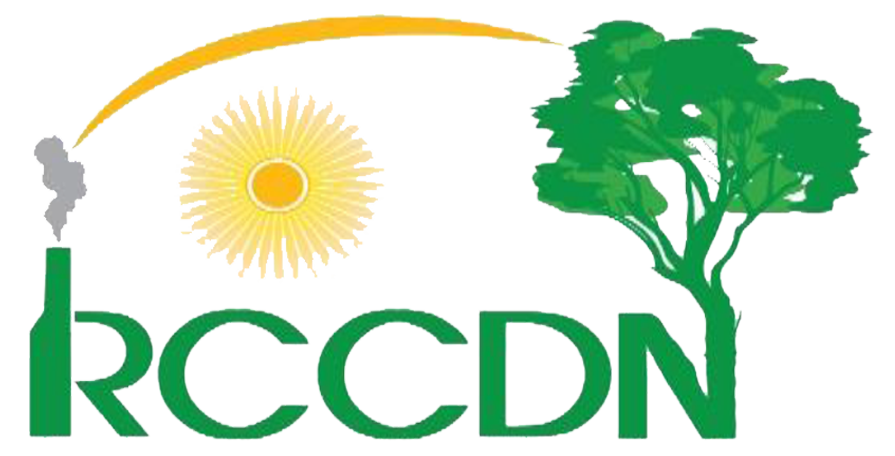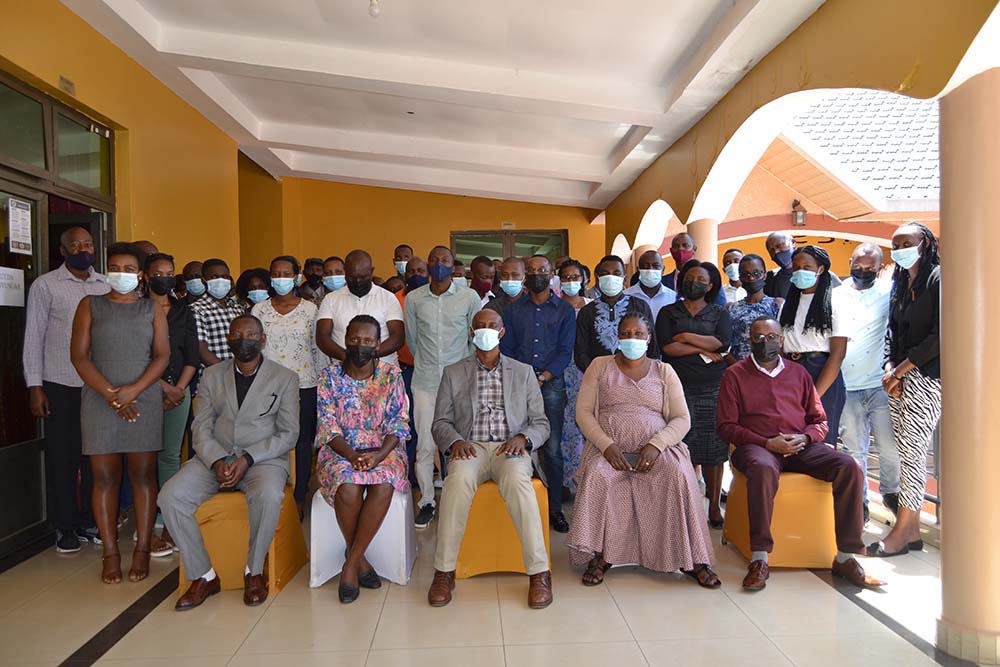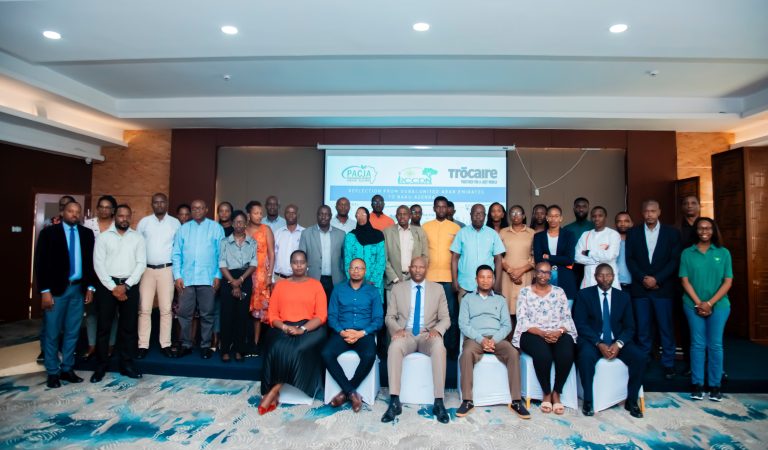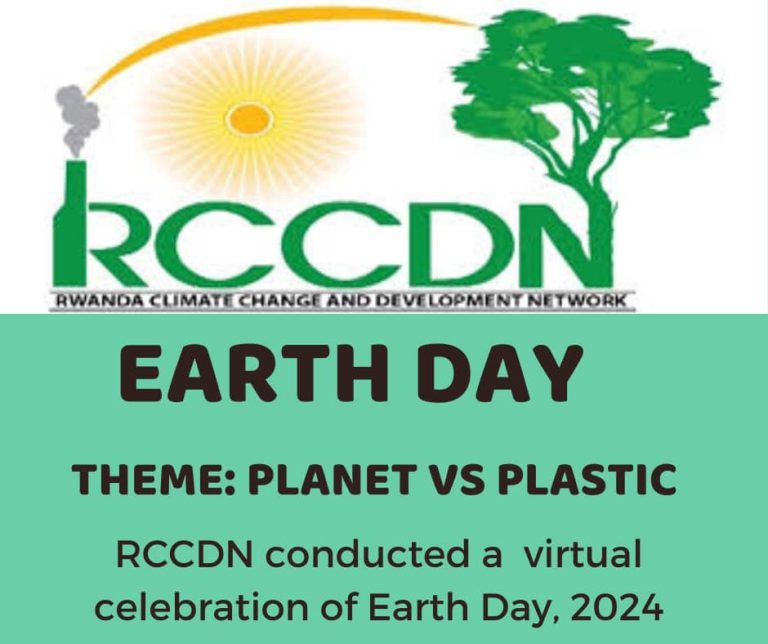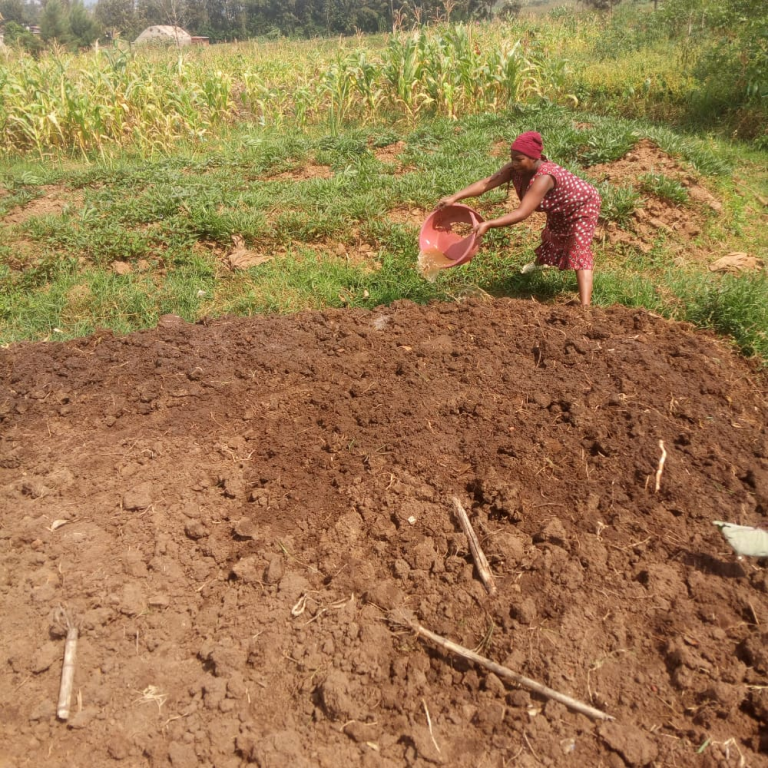Members of Rwanda Climate Change and Development Network (RCCDN) met in a two-day workshop to figure out their part in the implementation of the country’s Nationally Determined Contributions (NDCs) and the promotion of Agroecology for Climate resilience.
The two day capacity building workshop held on 24-25th August 2021, brought together 63 member civil society organisations working in different sectors with a direct link to climate change and related disaster risk management from the community level up to the national level.
Eugene Rwibasira, the Chairman of RCCDN officially opening the meeting underlined that it provided an opportune time for members to discuss the role of CSOs and how to support other organs of government in implementing NDCs and the Paris Agreement.
He called for member organisations to work and bring together their contributions because CSOs have always done good work in promoting climate resilience initiatives but their work has sometimes gone unregistered and unrecognised.
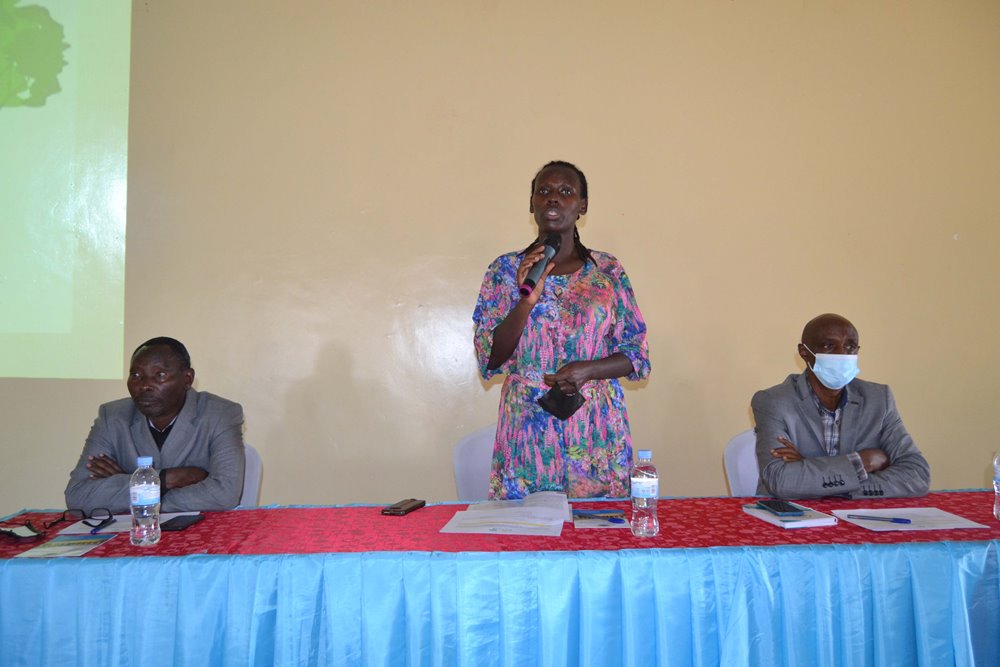
The Coordinator of RCCDN, Faustin Vuningoma (L) Rachael Tushabe, the Director of Environmental Education and Mainstreaming at REMA (C) and Eugene Rwibasira, the Chairman of RCCDN during the official opening of the workshop
His advice was equally echoed by the Coordinator of RCCDN, Faustin Vuningoma who elaborately explained what is at stake since climate change is a crosscutting issue that reaches every aspect of human life.
Vuningoma underscored the need for every member organisation to renew their commitments in regard to NDCs in their respective regions also promising that RCCDN will handle advocacy at the national level.
Rachael Tushabe, the Director of Environmental Education and Mainstreaming at Rwanda Environment and Management Authority (REMA) enlightened participants about different standards that have been set up by government to protect the environment.
She elaborated how REMA is implementing them while calling for CSOs to be part and contribute in the awareness of the climate change resilience initiatives.
She congratulated RCCDN for bringing together all the organisations in the country that are working to safeguard the environment and its work to ensure that everyone understands NDCs like the recent release of a Kinyarwanda translated book which is also user friendly.
During the discussions, agriculture was pointed out as one of the most important sectors in the journey to reduce green gas emissions. It was noted that if Rwanda can do better in this sector will greatly help in offsetting gas emissions.

In agriculture, the use of industrial fertilizers was mentioned to be one of the biggest threats to climate which should be gradually scaled down while increasing the use of organic fertilizers.
Members resolved to own and be part in fulfilling the commitments in Rwanda’s Nationally Determined Contributions as a way to achieving inclusive and sustainable development.
The participants recommended to continue raising awareness to climate change in their respective areas of operations, sensitize Rwandans in conservation efforts, the private sector to be mindful of the environment and encourage the young generation to be involved in climate change initiatives.
The two-day workshop enlightened many of the participants about NDCs that will help Rwanda navigate its climate action to limit the increase in global average temperature as well as raise global resilience.
The meeting was organised by RCCDN secretariat in support by the Norwegian People’s Aid (NPA) through Public Policy Information, Monitoring and Advocacy, PPIMA project.
